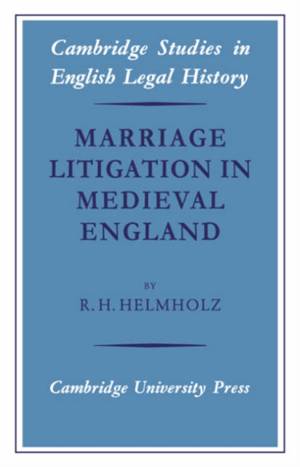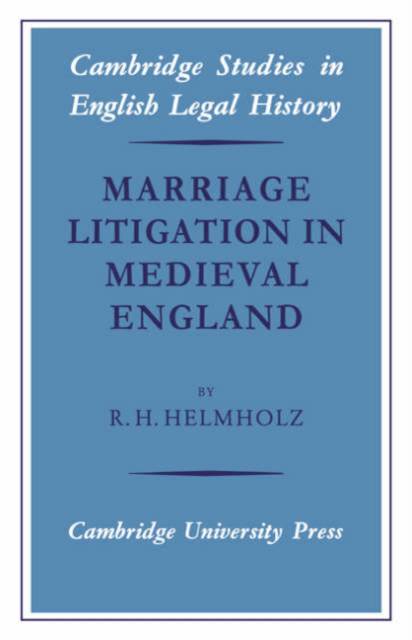
- Afhalen na 1 uur in een winkel met voorraad
- Gratis thuislevering in België vanaf € 30
- Ruim aanbod met 7 miljoen producten
- Afhalen na 1 uur in een winkel met voorraad
- Gratis thuislevering in België vanaf € 30
- Ruim aanbod met 7 miljoen producten
Zoeken
Omschrijving
This book tells one part of the long history of the institution of marriage. Questions concerning the formation and annulment of marriage came under the exclusive jurisdiction of the church courts during the Middle Ages. Drawing on unpublished records of these courts, Professor Helmholz describes the practical side of matrimonial jurisdiction and relates it to his outline of the formal law of marriage. He investigates the nature of the cases heard, the procedure used, the people involved and changes over the period covered, all of which add to what is known about marriage and legal practice in medieval England. The concluding assessment of canonical jurisdiction over marriage suggests that the application of the law was more successful than is usually thought.
Specificaties
Betrokkenen
- Auteur(s):
- Uitgeverij:
Inhoud
- Aantal bladzijden:
- 260
- Taal:
- Engels
- Reeks:
Eigenschappen
- Productcode (EAN):
- 9780521035620
- Verschijningsdatum:
- 26/03/2007
- Uitvoering:
- Paperback
- Formaat:
- Trade paperback (VS)
- Afmetingen:
- 140 mm x 216 mm
- Gewicht:
- 331 g

Alleen bij Standaard Boekhandel
+ 181 punten op je klantenkaart van Standaard Boekhandel
Beoordelingen
We publiceren alleen reviews die voldoen aan de voorwaarden voor reviews. Bekijk onze voorwaarden voor reviews.











